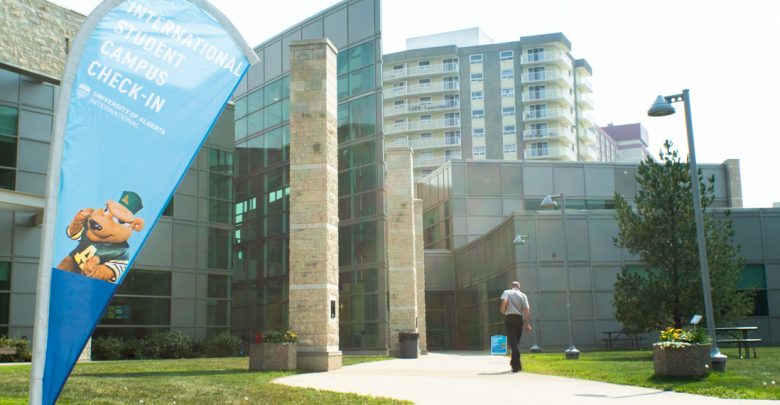University administrators discuss if tensions between China and Canada could affect U of A
 Richard Bagan
Richard BaganThe University of Alberta is remaining “cautiously optimistic” about its relationship with China as Chinese-Canadian relations have become increasingly strained.
Discussion on how worsening diplomatic relations could affect the university occurred in response to the diplomatic fallout resulting from the arrest of a high-level executive from the Chinese multinational conglomerate Huawei on December 1, after receiving a request for her arrest from the United States. Tensions rose further after a number of Canadian citizens were detained by China.
Provost Steven Dew said the university is aware of the developments in Canada-China relations. On January 16, he responded to concerns about the situation with China and if it has affected the U of A at an Academic Planning Committee meeting — the General Faculties Council subcommittee that deals with academic and planning concerns.
Dew responded that Dean’s Council — which allows all deans to engage with upper administration — has been exploring potential scenarios already based off what the Government of Canada’s Department of Global Affairs has been saying.
Dew added that the China Institute at the U of A (CIUA) has also been consulted on what the best course of action should be in the current political climate or if the situation escalates. He said the CIUA advised the university to proceed with the notion of “business as usual.”
“Don’t put any business with China on hold because things may seem like they are about to fall apart,” Dew said. “Although, keep an eye on Global Affairs Canada’s website.”
In addition, Dew said the university has begun considering what would happen if the situation between China and Canada worsens.
In August, Saudi Arabia pulled all students studying in Canada due to heightened diplomatic tensions after Canada’s foreign minister criticized the Middle Eastern government for arresting activists, and demanded their release. This ended up affecting 7,000 Saudi students across the country who had to leave Canada by August 31. According to the Registrar’s Office, 67 per cent of the U of A’s international students are from China.
“We would be significantly impacted if China did what Saudi Arabia did over the summer,” Dew said.
However, Dew said the university’s relationship with China is stronger than it is with Saudi Arabia.
“Our relationship with China is much deeper and more sophisticated than it is with Saudi Arabia,” Dew said. “My expectation is there would be a lot of stages of progression that would indicate
The China Scholarship Council funds Chinese students to study at international universities, including at the U of A. Dew said no indications of a change in relations have been detected from interactions with the Chinese body and the U of A.
Students’ Union president Reed Larsen said the SU is not currently concerned with China-Canada relations. He added the SU would be ready to respond if the situation escalated further and Chinese students studying at the U of A were immediately affected.
“We would do whatever we could, right away, if that situation came about,” Larsen said. “Right now, we are just proceeding ahead normally.”
U of A cautious about travel to China
The U of A maintains partnerships with Chinese universities through the Canada Learning Initiative in China so that it can send students to study abroad. Global Affairs has not issued any travel advisories but is asking Canadians to exercise a “high degree of caution” when travelling in China.
Dew said the CIUA told the U of A to not recommend students or researchers to travel to Tibet or Xinjiang at the current time as these are “sensitive” areas to the Chinese government.
The CIUA also said if members of the university are planning to meet with members of what the Chinese government perceive as dissidents for research purposes, these should be postponed for the time being.
Dew added that no student exchanges or programming has been cancelled or changed in any way.
“If [any of] this changes, we will make people aware of that,” Dew said. “Otherwise, relatively business as usual.”




